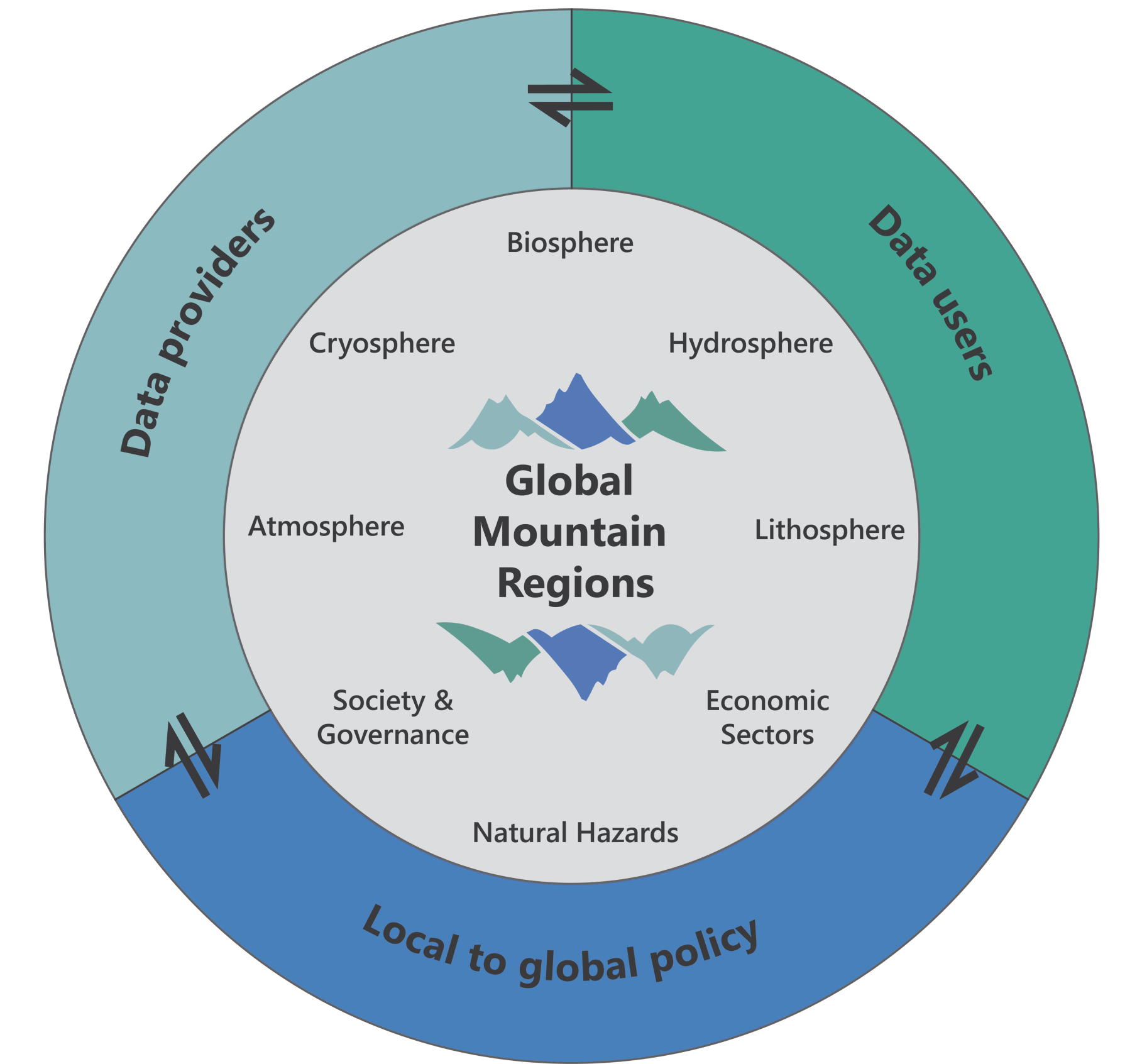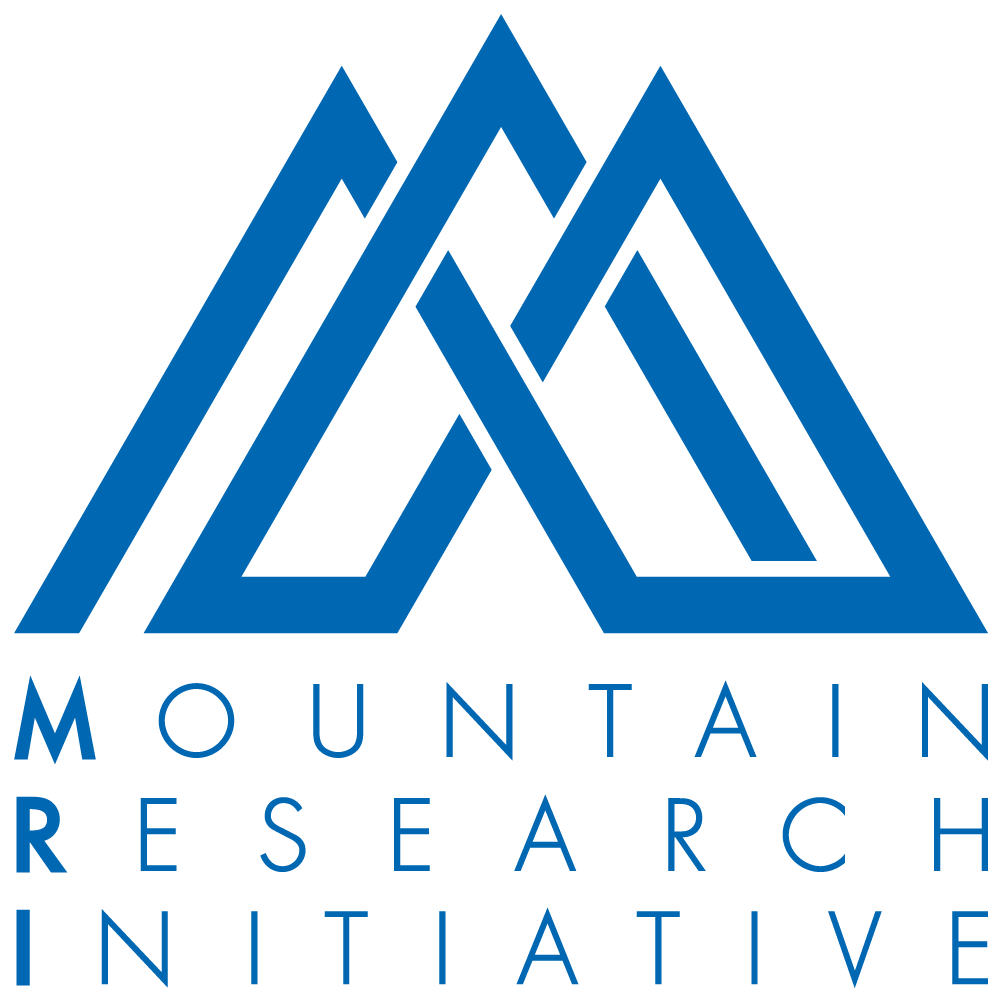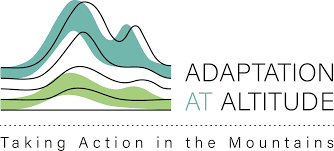Mountainous regions provide numerous goods and services to both highland and lowland populations globally. However, climatic and environmental changes, large-scale political and socio-economic transformations, and the unsustainable management of natural resources represent increasing threats. Decisions on policy and investment, from the level of local governments to international agencies, must be based on knowledge that reflects both the generalities and specificities of mountainous regions. Typically high levels of system complexity, paucity of observations from high-elevation regions, and associated gaps in the comprehensive understanding of mountainous systems thus represent key challenges that must be overcome.

Aims & Objectives
In this context, GEO Mountains aims to bring together research institutions and mountain observation networks to enhance the discoverability, accessibility, and usability of a wide range of relevant data and information pertaining to environmental and socio-economic systems – both in situ and remotely sensed – across global mountain regions. In doing so, we hope to help facilitate scientific advancements and support decision makers at local, national, and regional levels.
Our four more specific objectives are to:
- Identify and help meet the data and information needs of a diverse range of stakeholders operating in the mountain sphere;
- Improve the monitoring and understanding of mountain processes and phenomena, especially under change;
- Build a network of mountain researchers, practitioners, and policy makers, and effectively communicate with them, and;
- Develop collective reporting capacity that responds to pre-identified assessment and policy needs.
In doing so, we hope to help ensure that mountains assume and retain a prominent position in all major global policy agendas, including the UN 2030 Agenda for Sustainable Development, the Sendai Framework for Disaster Risk Reduction, the Paris Agreement, and assessment exercises of the Intergovernmental Panel on Climate Change (IPCC) and the Intergovernmental Science-Policy Platform on Biodiversity and Ecosystem Services (IPBES).

GEO Mountains thus seek to link data providers, users, and consumers of derived knowledge (e.g. policy makers) with respect to multiple themes or diciplines, as illustrated by the diagram above. In accordance with the positions of The Group on Earth Observations (GEO) and the World Data System, we also advocate, and aspire to implement, a strong Open Data policy . However, we recognise that certain specific types of sensitive data must remain subject to restrictions.
We promote knowledge co-production and user engagement, whereby policy and decision makers are actively engaged in the creation of new knowledge. To achieve this, GEO Mountains engages policy actors in an on-going consultation process.
We seek to develop strong connections and synergies with other relevant GEO Work Programme activities, such as GEO BON, and The GEO Human Planet Initiative (HPI), as well as other relevant network-type organisations such as ICIMOD, CONDESAN, iLTER/eLTER and PAGES. Via the MRI, we have links to Future Earth.
The MRI's Working Groups, especially the Elevation Dependent Climate Change Working Group and Mountain Observatories Working Group, also support the endeavours of GEO Mountains.







